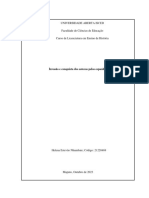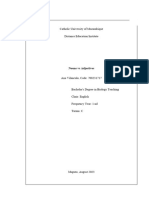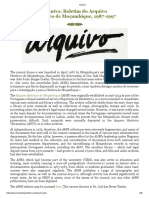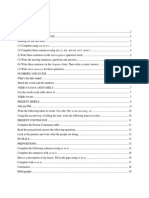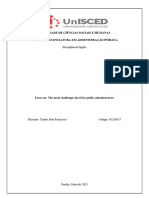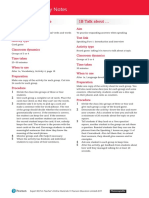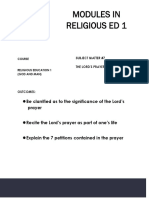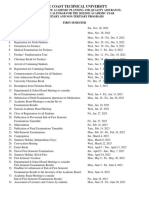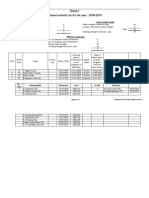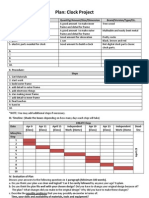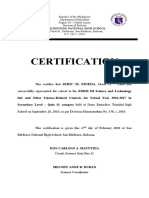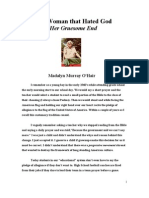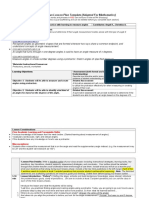UNIVERSIDADE ABERTA ISCED – UnISCED
FACULDADE DE CIÊNCIAS SOCIAIS E HUMANAS
CURSO DE ADMINISTRAÇÃO PÚBLICA
DISCIPLINA: English
Essay (academic type) on the following topic:
a) What are the main challenges faced by public administrators in your country
today?
b) Suggest some probable ways to mitigate these challenges.
Fátima da Coiceicao Francisco
Nampula, Maio de 2024
1
�Introduction
Public administration plays a vital role in the functioning and development of any country,
being responsible for ensuring efficiency and effectiveness in delivering basic services to
the population. In Mozambique, a country located in southeastern Africa, public
administrators face a series of complex challenges that directly impact the government's
ability to meet the needs and demands of society.
1.1. Objectives:
1.1.1. General Objective
To analyze the main challenges faced by public administrators in Mozambique today.
1.1.2. Specific Objectives:
To identify the main challenges faced by public administrators in Mozambique today;
To propose strategies and concrete measures to mitigate the identified challenges.
Methodology: To fulfill this objective, this work relied on bibliographical research, as
described by Lakatos and Marconi (2003), involving a broad review of the main studies
previously conducted, highlighted for their ability to provide contemporary and relevant
information related to the topic in question. Thus, this method involved the careful
selection of articles and authors addressing the aforementioned theme.
Structure: The work comprises the following structure: Introduction, which presents the
work; Development, which exposes and discusses theories and presents the results;
followed by the Conclusion, which provides a general synthesis of the work, bringing the
respective findings. And finally, the Bibliographical References.
1
�Academic Essay
In Mozambique, public administrators face a series of significant challenges that affect the
efficiency and effectiveness of public administration. One of the main challenges is
financial management, with the country experiencing budgetary constraints due to factors
such as dependence on external aid and economic instability. This limitation of resources
hampers the government's ability to provide basic services, such as health and education, to
the population. To mitigate this challenge, it is crucial to seek alternative sources of
funding, promote transparency in financial management, and improve efficiency in the
utilization of available resources (ERDAP, 2012).
Additionally, excessive bureaucracy and complex administrative procedures pose
significant obstacles for public administrators in Mozambique. This results in delays in the
provision of public services and difficulties in implementing policies and programs
effectively. One strategy to mitigate this challenge is to promote administrative
simplification and modernization of processes, utilizing information and communication
technologies to streamline procedures and enhance operational efficiency (CIRESP, 2001).
Corruption is also a serious problem affecting public administration in Mozambique,
undermining the population's trust in government institutions and compromising the
integrity of the political system. To combat corruption, it is necessary to strengthen control
and oversight mechanisms, promote transparency and accountability, and implement
integrity and ethics policies in the public service. Additionally, it is important to strengthen
institutions responsible for combating corruption and ensure effective punishment for the
guilty (República de Moçambique, 2006; CIRESP, 2001).
Another challenge faced by public administrators in Mozambique is the provision of
quality public services, especially in the areas of health, education, and infrastructure. The
lack of adequate infrastructure, qualified human resources, and adequate funding hinders
the delivery of efficient and accessible services to the population. To improve the quality
of public services, it is necessary to invest in training and qualification of staff, strengthen
infrastructure, and adopt innovative management approaches (Simione, 2014).
2
�Finally, decision-making amidst increasingly diverse social demands represents a complex
challenge for public administrators in Mozambique. With an increasingly plural and
demanding society, Mozambican administrators face the difficult task of reconciling
conflicting interests and ensuring equity in the distribution of public resources. To tackle
this challenge, it is essential to promote citizen participation and social dialogue, involving
different segments of society in the formulation and implementation of public policies.
3
�Conclusion
In conclusion, it is evident that public administrators in Mozambique face a range of
complex challenges that require multifaceted and collaborative approaches to overcome.
Financial management, bureaucracy, corruption, and the quality of public services are
urgent issues that demand immediate attention and action from both the government and
civil society. By adopting measures to promote transparency, strengthen oversight
institutions, and implement policies of integrity and efficiency, Mozambique can move
towards a more responsible, effective, and citizen-centered public administration, thereby
contributing to the well-being and sustainable development of the country.
4
�Referências bibliográficas
Comissão Interministerial da reforma do Sector Público-CIRESP (2001). Maputo,
Moçambique.
Lakatos, E. M. e Marconi, M. A. (2003). Fundamentos de Metodologia Científica. (5ª ed.).
São Paulo: Editora Atlas
Ministério da Função Pública (2012). Estratégia de Reforma e Desenvolvimento da
Administração Pública 2012-2025 (ERDAP).
REPÚBLICA DE MOÇAMBIQUE, Lei n° 7/2012 de 8 de Fevereiro, Lei que estabelece as
bases e funcionamento da Administração Pública, in Boletim da República, I Série
n°6 de 8 de Fevereiro de 2012.
República de Moçambique (2006). Programa da Reforma do Sector Público -II Fase
(2006-2011). Autoridade nacional da Função Pública. Maputo, Moçambique.
República de Moçambique (2001). Estratégia Global da Reforma do Sector Público 2001-
2011.
Simione , A. A. (2014). A modernização da gestão e a governança no setor público em
Moçambique. Rev. Adm. Pública. Rio de Janeiro, v. 48 n. 3, p.551-570













